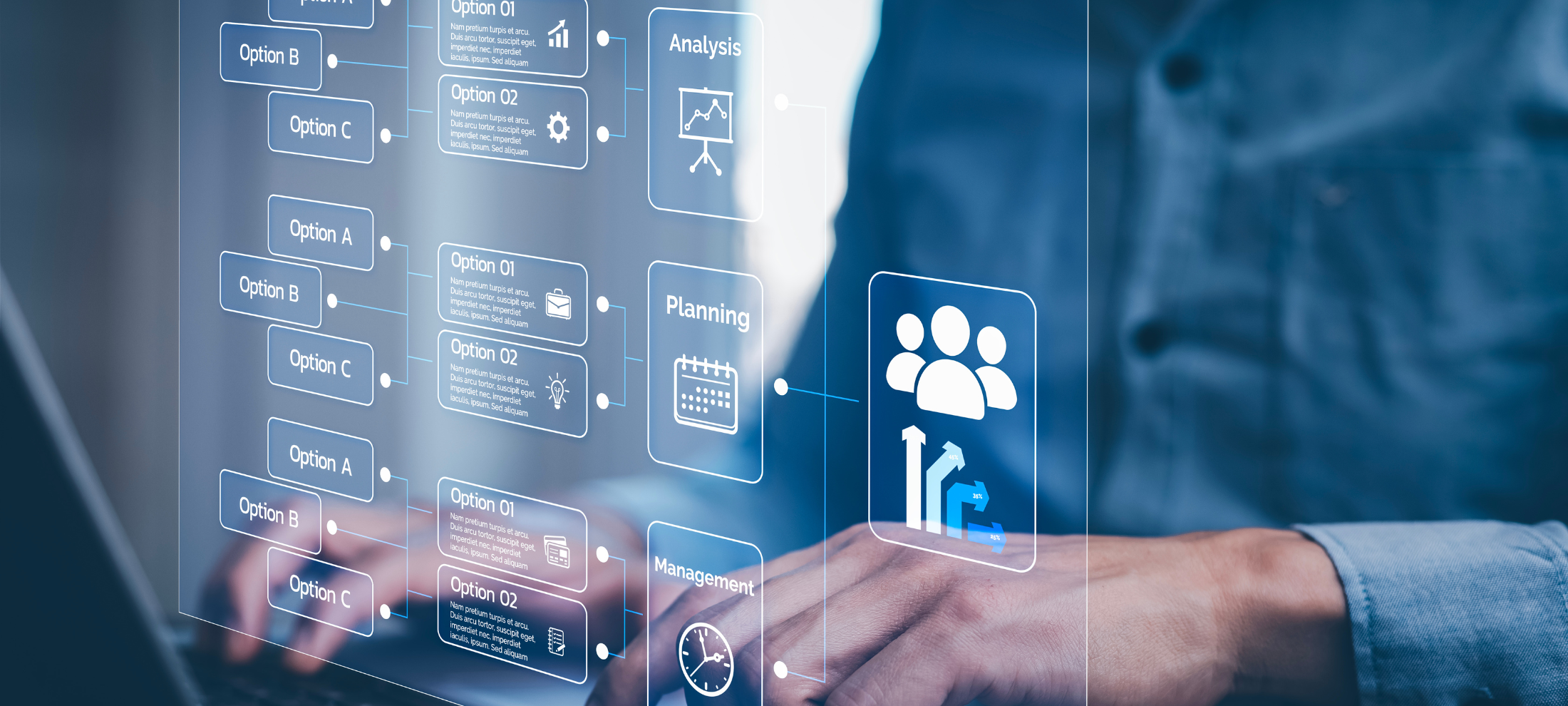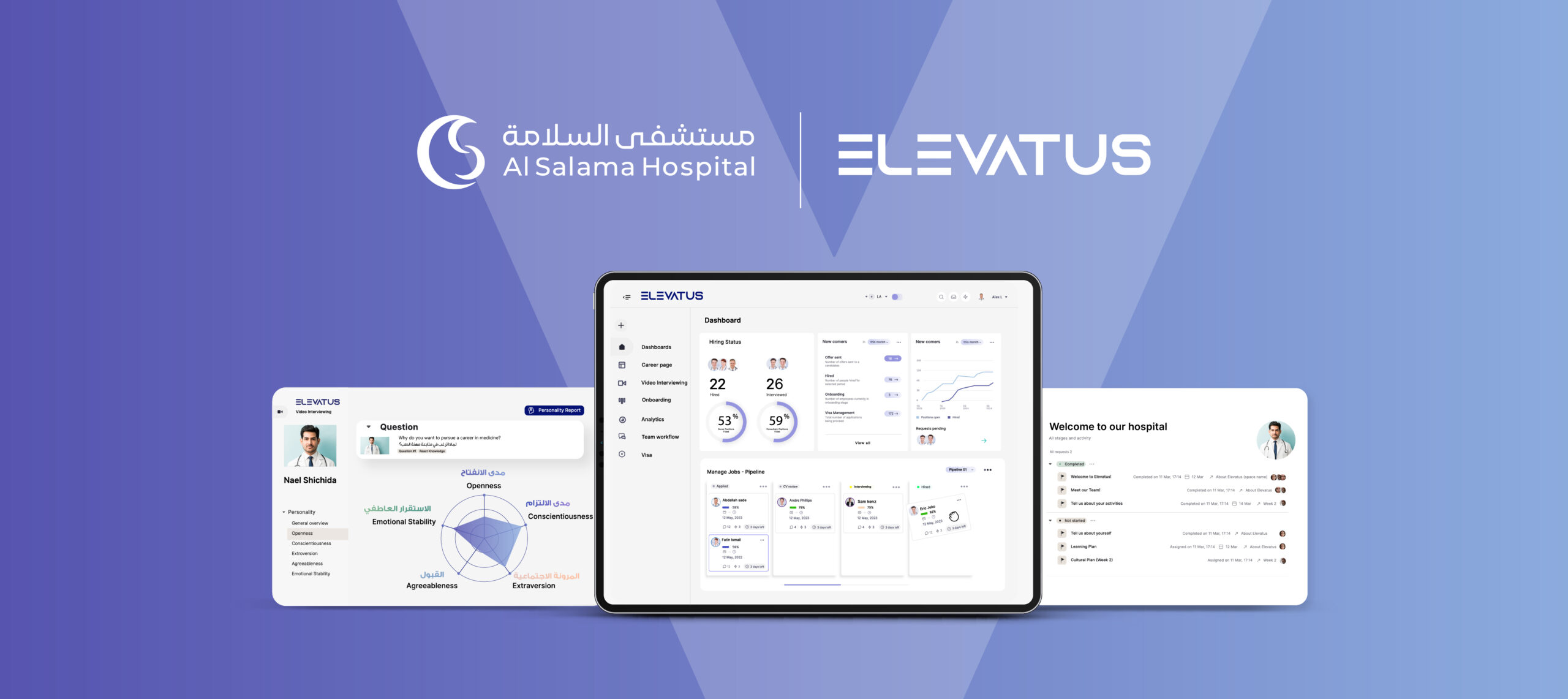
AI for Hiring
AI in Hiring: 10 Mind-Blowing Ways You Must Master Today
February 26, 2024



Kiran Kazim
Content Writer
AI in hiring is making waves. Period.
It definitely offers a smarter, faster way to connect with top talent in the world of recruitment.
This post highlights 10 innovative ways to use AI in hiring that are changing everything, from cutting down the time it takes to sift through job applications to tackling human biases head-on.
Whether you’re in the IT sector or part of a broader human resources team, these AI-driven strategies are here to revolutionize your hiring process, ensuring a smoother, more accurate experience hiring managers. Get ready to discover how implementing AI in the hiring process can transform your talent acquisition efforts, making the process of finding the perfect candidate as seamless as it is effective.
Build a candidate experience that comes first
See how our award-winning ATS can help you deepen your talent pool and fill positions faster by building an immersive and modern candidate experience.
Request a demoTable of Contents
The Power of AI in Revolutionizing Recruitment


The world of recruitment is being transformed by AI, ushering in an era of greater efficiency, accuracy, and fairness. This shift goes beyond simple task automation; it redefines how employers and potential candidates connect. AI in hiring is changing the game by analyzing huge amounts of data from job applications and social media to find the best matches for a job, something traditional methods can’t match.
AI hiring tools streamline the recruitment process from start to finish. They help write clear job descriptions, ensure candidates match well with job roles, and ultimately aid in the final selection. By using machine learning, AI reduces the biases that often sneak into hiring decisions, making the process fairer and more inclusive. This improves the candidate experience with timely, relevant feedback and helps hiring managers make choices based on data, in line with company goals for diversity and talent acquisition.
Looking ahead, AI’s role in recruitment is set to do more than just save time. It’s poised to revolutionize how we find, assess, and connect with talent, setting new standards for hiring.
Role of AI in Hiring Today


Now AI has emerged as a pivotal force, reshaping how companies approach talent acquisition. Gone are the days when the process relied solely on manual resume screening and gut feelings. Hiring with AI brings a sophisticated blend of efficiency and insight, enabling recruiters to navigate the vast pool of potential candidates with precision.
By automating time-consuming tasks and analyzing data at a scale unattainable by humans, AI tools for hiring offer a smarter, more strategic path to identifying the right fit for any role. This technological advancement doesn’t just streamline operations; it opens the door to a more dynamic, fair, and engaging recruitment process, ensuring that talent is matched with opportunities where they can truly thrive.
AI As The New Frontier in Recruitment Strategies
The advent of AI in the recruitment world is not just an upgrade; it’s a complete overhaul of traditional hiring practices. This transformation, deeply embedded in how recruitment strategies and operations are conceived and executed, has been significantly fueled by AI’s expanding role. From identifying potential candidates to finalizing job offers, AI fundamentally changes the recruitment playbook.
Highlighting this shift, Market Research Future reports a remarkable surge in the AI recruitment market, with a growth of over $50 million from 2022 to 2023 alone. With an impressive growth rate of over 64.45% from 2020 to 2023, the industry is on track to hit $942.3 million by 2030, underscoring the profound impact AI is having on transforming hiring into a more efficient, targeted, and innovative process.
79% of organizations already use automation and/or AI in recruitment and hiring.
By harnessing the power of AI for hiring in the IT sector, in fact almost all sectors, companies are now able to deploy sophisticated algorithms that sift through mountains of data to find candidates who not only meet the job requirements but also fit the company culture. These AI systems analyze patterns and insights from past hiring decisions, job applications, and even social media activities to predict which candidates will succeed. Furthermore, the implementation of AI tools in the hiring process helps eliminate unconscious biases, promoting a more diverse and inclusive workforce.
The result is a more efficient, accurate, and fair hiring process that aligns closely with the organization’s strategic goals. Recruiters can now spend less time on administrative tasks and more on engaging with potential hires, crafting strategies that attract top talent. AI in recruitment is not just changing how companies hire; it’s enhancing the human element, enabling a more personal and impactful connection with candidates.
For example, EVA-REC is an award-winning recruiting software that uses AI in hiring, sourcing, and attracting candidates globally. With EVA-REC, you can build modern career pages that convert, integrate with world-class technology providers, automatically post jobs on 2,000+ global job boards, filter resumes fast, rank candidates in order of qualification, and seamlessly collaborate with teammates – all in one single, integrated solution.
The AI Advantage in Elevating Hiring
Integrating AI into the hiring process brings a host of benefits that revolutionize both the candidate experience and operational efficiency. At its core, AI transforms recruitment into a more streamlined, intuitive journey, significantly reducing the time and resources traditionally required to fill positions. This leap in efficiency allows human resources teams to focus on strategic tasks, such as engaging directly with candidates and enhancing employer branding, rather than getting bogged down by the minutiae of sorting applications and scheduling interviews.
For candidates, the impact of AI in hiring is equally transformative. AI-driven platforms can offer personalized feedback and communication at every stage of the application process, making candidates feel valued and informed. This level of engagement not only improves the overall experience but also boosts the company’s image as an employer of choice.
Over 63% of candidates were dissatisfied with the communication from their employers after applying for a role. Unhappy candidates can leave negative online reviews. You can lose customers. This is easily remedied by using an applicant tracking system to help with timely responses and scheduling candidates.
By leveraging machine learning algorithms, AI helps in accurately matching candidates with job roles that suit their skills and potential, thus increasing the chances of a successful hire. This precision reduces the likelihood of turnover, saving companies significant costs and time in the long run. AI in recruitment is not just a tool for efficiency; it’s a catalyst for creating more meaningful connections between employers and job seekers.
Transforming Talent Acquisition By Incorporating Innovative AI in Hiring


Let’s now look into the innovative uses of AI that are setting new standards in hiring, making the process not only more efficient and accurate but also more fair and engaging for candidates across the board.
The Revolution of Automated Resume Screening
The rise of automated resume screening has revolutionized how we find talent, making the process much faster and more precise. This AI-driven method can quickly sift through hundreds or thousands of resumes, picking out candidates who not only match the job’s requirements but also fit the company culture. This is a big change from the old, time-consuming way of manually checking resumes, which often missed great candidates due to human error and bias.
Automated screening uses smart algorithms to fairly and objectively look at each applicant’s skills, experience, and potential. This leads to a more thorough and unbiased review, cuts down the hiring time, and improves the quality of candidates moving forward.
What really makes automated resume screening stand out is its ability to make hiring fairer. It removes personal biases and focuses only on merit and how well someone fits the role, giving everyone a fair shot. For companies, this means not just filling a job but improving their team with the right people. Automated screening is a key tool for finding top talent who can help drive success.
By adopting this AI solution, organizations not only make their hiring process smoother but also prepare their workforce for future challenges, ensuring they have a dynamic and skilled team.
Get your job in front of millions of candidates
Post your jobs on 2000 job boards, get job board recommendations, and source at the speed of light with EVA-REC, the world’s leading ATS.
Request a demoAI-powered Candidate Sourcing
AI-powered candidate sourcing is revolutionizing how companies find and engage with potential hires. By using advanced algorithms and machine learning, AI searches across the internet—social media, professional networks, and job boards—to discover candidates that traditional methods might overlook. It’s not just about scanning data; it’s intelligently analyzing information to identify people whose skills, experience, and career goals match a role’s specific needs.
What makes AI stand out in candidate sourcing is its ability to proactively find passive candidates—those not actively looking for a job but who might be a perfect match for a position. This approach greatly expands the talent pool, reaching into areas that conventional strategies often miss.
As AI continues to learn from each search, interaction, and hiring cycle, it gets better at spotting the most promising candidates. This means the recruitment process becomes not only quicker but more accurate over time.
For companies, adopting AI into their talent-sourcing strategies has major benefits. They gain access to a wider, more diverse talent pool and can connect with top candidates more quickly, offering a significant competitive edge. In today’s fierce battle for talent, AI-powered candidate sourcing is more than just a cutting-edge tool; it’s a strategic must-have for securing the best talent out there.
For example, by using AI recruiting tools like EVA-REC, organizations can enhance their recruitment strategy further. EVA-REC offers the ability to track candidate sources swiftly, presenting a comprehensive view of where candidates are coming from at any given time. This feature allows companies to easily identify which channels yield the highest conversion rates, enabling them to prioritize the most effective sources, optimize their recruitment budget, and consistently post jobs on the most productive channels.
The Magic of Enhanced Job Matching Algorithms
At the heart of modern recruitment technology is the breakthrough of enhanced job matching algorithms, showcasing how AI is transforming the way job seekers find their ideal roles. These sophisticated, AI-driven tools analyze a wide range of factors, from candidates’ technical skills and work experience to their personalities and what they prefer in the workplace. This in-depth analysis makes sure people find job opportunities that match their qualifications and support their career goals and work styles.


‘No computer will replace human interaction because it can only be taught to mimic. They’re not capable of the intuition, instinct, imagination or emotional intelligence necessary to make smart hiring decisions.’ – Neha Naik Founder & CEO RecruitGyan
Moving beyond the traditional, broad-brush approach that often led to mismatches, these algorithms offer a highly personalized job search experience. They bring to the table tailored recommendations that drastically improve the odds of not just landing a job but also finding one that promises fulfillment and growth. For employers, the implications are profound. By leveraging these AI-driven tools, they can attract talent that is not just capable but also more likely to be engaged and committed, significantly enhancing team dynamics and productivity.
The precision and customization provided by these job-matching algorithms are key in reducing employee turnover and creating a more cohesive and vibrant workplace culture. As a cornerstone of contemporary, efficient, and effective hiring strategies, these algorithms capture the true spirit of recruitment in the digital age. They streamline the hiring process and improve the quality of hires, making sure that both organizations and candidates find their ideal match in the wide world of work.
Chatbots in Initial Candidate Engagement
Chatbots are transforming the recruitment world, especially during those all-important first conversations between companies and potential hires. These AI-powered helpers provide a lively, interactive space for job seekers, giving them instant answers, and details about job openings, and helping with the first steps of applying. Available 24/7, they not only make the candidate experience better by offering quick, personalized attention but also take some pressure off human recruiters, who can then focus on the deeper parts of hiring.
But chatbots do more than just chat. They collect valuable data from every interaction, turning these conversations into insights that can sharpen recruitment strategies, making it easier to find the right talent. They also ask initial screening questions, filtering applicants so only those who fit the job criteria move forward. This streamlines the hiring process and ensures a higher quality of candidates get through.


“Customers expect you to value their time, to make engagement easy, and to deliver answers and resolutions in a highly personal manner and in the context of their actions and journeys,” – Kate Leggett, vice president and principal analyst at Forrester Research
Bringing chatbots into the mix early is a big step forward in connecting with potential employees. They make the recruitment process smoother, more welcoming, and more efficient. Using chatbots sends a message of innovation and openness, making the company more attractive to a wide range of talents. Chatbots are not just about making things easier; they’re about bringing a massive change in recruitment, making it more flexible, accessible, and in tune with what job seekers today are looking for.
Predictive Analytics in Talent Acquisition
Predictive analytics is revolutionizing talent acquisition by turning data into actionable insights, enabling companies to forecast hiring trends, identify potential challenges, and tailor their recruitment strategies for optimal outcomes. This cutting-edge approach leverages historical data, patterns of successful hires, and current market trends to predict future staffing needs and candidate success. By analyzing a wide array of variables, including job performance, retention rates, and the effectiveness of recruitment channels, predictive analytics provides a strategic edge in talent acquisition.
This data-driven methodology allows companies to proactively address gaps in their workforce, reduce turnover, and ensure a steady pipeline of high-quality candidates. It also offers the unique advantage of identifying the traits and skills of top performers, enabling targeted searches for candidates with similar profiles. Furthermore, predictive analytics can optimize the recruitment process by forecasting the success of various sourcing strategies, helping companies allocate their resources more effectively.
Basically, predictive analytics transforms recruitment from a reactive to a proactive function, empowering companies to anticipate and meet their talent needs with unprecedented precision. As workforce tactics continue to evolve, the ability to forecast and adapt will become increasingly critical, making predictive analytics an invaluable tool in the quest for top talent.
AI for Enhancing Internal Mobility
AI for internal mobility is opening up new opportunities for career growth within companies, tapping into the talents of existing employees with cutting-edge matching algorithms and predictive analytics. This innovative method spots chances for employees to either move up or switch directions within their current company, making sure their ambitions and skills match up with open roles and projects. By using AI, companies can create a vibrant, engaging workplace that doesn’t just keep talent around but helps it flourish.
This tech digs into employees’ skills, how well they’ve been doing their jobs, and where they want their careers to go, suggesting roles that fit their growth paths. It promotes a workplace where learning and development are constant, enabling companies to discover and utilize the untapped potential in their teams. Plus, focusing on internal mobility with AI helps cut down on the costs and turnover that often come with hiring from outside.
For employees, AI in internal mobility makes climbing the career ladder or finding a new path a fair, personalized process. For employers, it’s a smart strategy that improves how they plan their workforce and nurtures a culture where growth and opportunity are key.
Recruit top talent in local languages
Expand your reach, grow your talent pool and target new markets by recruiting in multiple languages. Create fully localized experiences — from job requisition to job offer — in 9 languages.
Request a demoImpact of Video Interview and Conversation Analysis
Video interviews have become a key part of hiring, making it super easy for interviewers to meet candidates from anywhere. But the real breakthrough has been the introduction of AI-driven analysis of these video chats. This isn’t just about recording conversations; it’s about deeply understanding them. AI can look into how candidates talk, their tone, facial expressions, and even body language. This gives a full picture of a person’s communication skills, confidence, and how well they might fit the job.
This level of detail helps cut down on unconscious bias, making the hiring process fairer and more objective. AI can catch the little things that might slip by in a regular interview, giving a more complete view of each candidate. This means hiring managers can make better choices, finding candidates who really gel with the company’s vibe.
With AI in the mix, companies can sharpen their hiring practices, pick better candidates, and create a more welcoming space for everyone. This tech isn’t just changing the way interviews are done; it’s setting new benchmarks for how we assess potential hires.
The Power of AI in Skill and Personality Assessments
AI for skill and personality assessments is revolutionizing how we understand what candidates have to offer. This cool approach doesn’t just look at what someone knows or can do technically; it also gets into their personality, how they work, and how well they’d mesh with the company vibe. This gives a fuller picture of what each candidate is all about, helping companies make smarter, more informed hiring choices.
Remember the time when we only relied on resumes or the usual interviews? AI assessments, however, go deeper, checking out how people handle different scenarios, play certain games, or tackle tasks to figure out their thinking style, problem-solving chops, and how they behave. This kind of deep dive gives clear, unbiased insights, shining a light on folks who might have been missed the old-school way.
Simplify and standardize the process
Rework your job descriptions
Go blind for the résumé review
Give a work sample test
Standardize interviews
Set diversity goals
For businesses, this is a big win. They can find people who not only have the right skills but also fit right in with the team and the overall company culture. It’s all about creating a more vibrant, united workplace where all kinds of ideas and creativity can grow. So, as it keeps getting better, AI in skill and personality testing isn’t just about picking the next hire; it’s about rethinking the whole talent landscape.
AI-Enhanced Onboarding and Integration
AI is transforming how new employees get started at a company, making the whole experience smoother and more welcoming. It’s all about making sure new hires feel at home, understand their jobs, and get productive quickly, which can really help them stick around for the long haul.
With AI, the onboarding process gets a personal touch. Instead of a one-size-fits-all approach, AI tools can customize how each new person learns about their role and the company culture. This means new employees can hit the ground running with learning paths made just for them, helping them get up to speed faster and with fewer bumps along the way.
These smart systems can also spot common problems that newbies might run into and offer the right support and resources at the right time. Plus, using AI in the hiring process can help new hires feel connected from the get-go by linking them up with colleagues who share their interests or work backgrounds and pointing them toward groups or mentors within the company.
So, with AI smoothing out the onboarding and integration process, companies aren’t just making paperwork easier; they’re building a happier, more productive team from day one.
The Powerful Advantages of AI Onboarding
Pros:
-
- Personalized
- Consistent
- Data-driven
- Always available
- Efficient
Cons:
- Impersonal
- Tech dependency
- Privacy issues
- Adaptation challenge
AI-Driven Retention Predictions
Keeping great employees is just as important as finding them, and AI is starting to play a big role in helping companies keep their best people. By looking at a lot of different data, like how well employees are doing, how they feel about their work, and even what they’re saying on social media, AI can spot signs that someone might be thinking about leaving.
This cool tech gives companies a heads-up so they can do something about it before it’s too late. Maybe that means offering extra training, changing some rules, or just making sure employees feel really appreciated. It’s all about making the workplace better so that everyone’s happy and wants to stick around.
AI doesn’t just help stop people from leaving; it also shows what makes employees happy and loyal. Companies can use this info to make every team a great place to work, which is awesome for everyone.
With AI, companies aren’t just waiting around for problems to happen. They’re getting ahead of the curve, using data to keep their teams happy and together. This means a stronger, more dedicated workforce that’s all in on helping the company succeed.
AI in Hiring: Final Thoughts
In summary, AI is transforming hiring by making it more efficient, accurate, and fair. These 10 innovative ways to use AI in hiring not only streamline the recruitment process but also improve hire quality and candidate experience. By adopting AI, companies can gain a competitive edge in talent acquisition, ensuring they attract and retain top talent. As we move forward, the future of hiring is set to be more dynamic, inclusive, and responsive to the needs of employers and job seekers alike.
Looking to save over 96% of your hiring costs while using AI in hiring?
EVA-REC, a globally recognized and award-winning AI recruiting software, empowers companies around the world to source, attract, and hire top talent efficiently and at scale. Get ready to create compelling, modern career pages that effectively convert, integrate seamlessly with leading technology providers, and effortlessly post jobs across 2,000+ global job boards. With EVA-REC, you can quickly filter resumes, rank candidates by qualifications, and collaborate smoothly with your team members – all within a single, integrated platform, streamlining your entire recruiting process. Request a free demo today!
Frequently Asked Questions
How can AI automate the resume screening process without missing potential candidates?
AI automates the resume screening process by using algorithms to scan resumes for specific keywords, skills, and experiences that match the job description. It can learn from hiring decisions to improve its accuracy over time, ensuring it identifies potential candidates effectively without overlooking talent.
What are the key benefits of using predictive analytics in talent acquisition?
The key benefits of using predictive analytics in talent acquisition include improved decision-making by forecasting hiring needs, identifying traits of successful employees to find similar candidates, reducing turnover through better matches, and optimizing recruitment strategies based on data-driven insights.
What steps should organizations take to successfully integrate AI into their hiring strategies?
To successfully integrate AI into their hiring strategies, organizations should first clearly define their recruitment goals and challenges. Then, they should invest in training for HR teams to understand and use AI tools effectively. It’s also crucial to choose AI solutions that align with their specific needs and to continuously monitor and adjust their AI strategies based on performance and feedback.
Turn top talent to employees fast
Hire, assess, onboard and manage top talent for every job. See how Elevatus streamlines everything; from acquire to new hire.
Request a demoAuthor



Kiran Kazim
Don't miss a thing!
Stay one step ahead. Subscribe and get the latest updates, news, and insights from Elevatus straight to your inbox.


![Balancing the Pros and Cons of Online Recruitment With the Right Tools [2024 Guide] | Elevatus An image of an HR manager defining the purpose of online recruitment to a new hire](https://www.elevatus.io/wp-content/uploads/2023/12/5-4.png)



